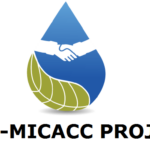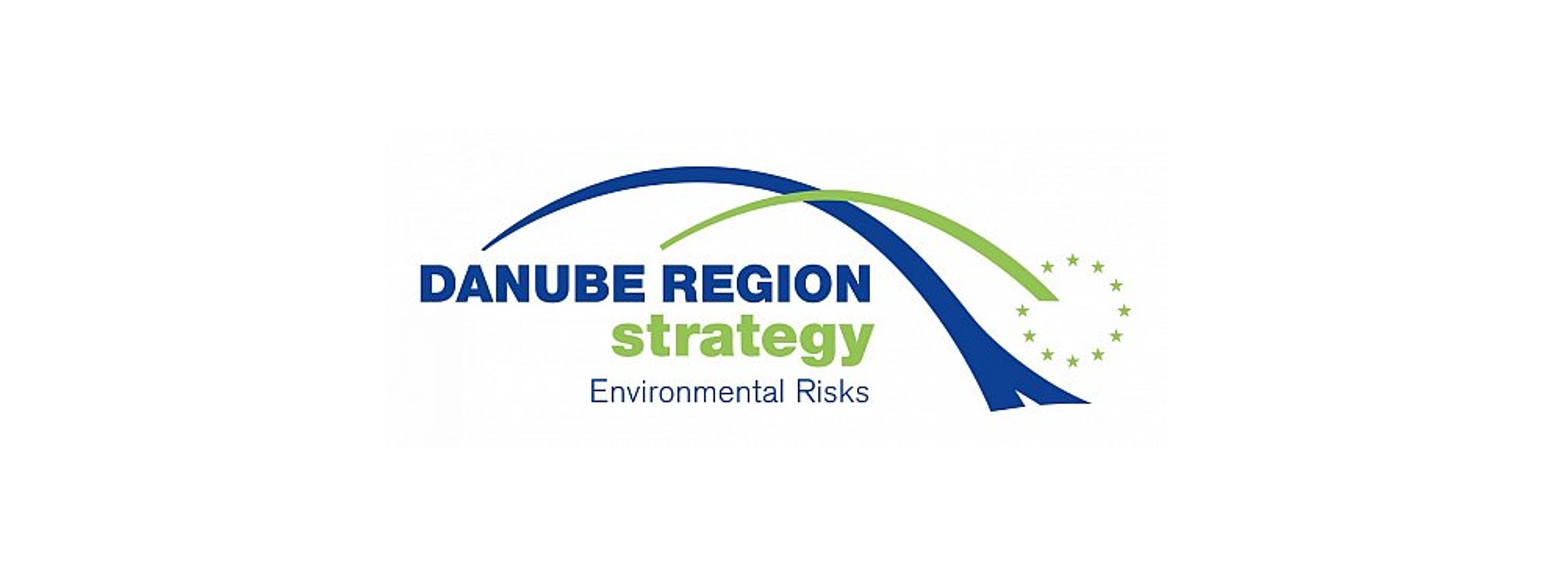7th Participation Day
The 7th Participation Day was held online on October 21, 2020. The moderator of the day was Stefan Luetgenau, representing the Danube Civil Society Forum. The main goal of the Danube Region Strategy (hereinafter: DRS) is to ensure flexible and sustainable development in the region and at the same time that the involvement of young people is essential.
The European Commission’s Directorate-General for Regional Affairs (DG Regio) was represented at the event by Jean-Pierre Halkin. He encouraged young people to dare to make their voices heard in the same way as they did about the climate crisis, as he was successful in creating the Green Deal. A number of initiatives have been launched, such as the EU Recovery Plan and the Biodiversity Strategy which sets targets for 2030. Young people can be involved in shaping the future in a number of ways, such as the Danube Youth Network and Interreg Voluntary Youth projects and the European Manifesto, which was written by young people to help them participate more widely in interreg programs.
Alessandra Cardaci and Astrid Aulnette, representing DG Regio, presented the European Manifesto. Five main areas were identified for intervention: improving young people’s skills and better access to training, increasing employment, simplifying rules and making better use of communication tools, tackling climate change, and involving citizens more effectively in legislation and implementation.
To sum up the day, Mirna Sostarko of the Danube Youth Network stressed that education has a huge role to play in enabling young people to be active participants in the community with the right political and economic knowledge.
9th Annual Forum
On 22 October 2020, the annual forum of the European Union Strategy for the Danube Region was organized in a virtual form, jointly organized by the Republic of Croatia, the European Commission and the Danube Transnational Cooperation Program with the support of the Danube Strategy Point Secretariat.
The participants of the meeting highlighted the achievements of the one-year Croatian Presidency and expressed their common commitment to the continuation of cooperation along the Danube. Coherent and sustainable regional development will be a key priority for economic growth in the coming period.
Croatia remains committed to the sustainable regional development of the European Union, which was important in the first half of 2020 during the Croatian Presidency of the EU Council and the Croatian Presidency of the EU Strategy for the Danube Region, said Croatian Prime Minister Andrej Plenkovic. The significant decline in tourism is a major economic problem for all 14 countries. The Prime Minister commemorated this year’s earthquake in Zagreb and thanked the EU for its assistance in dealing with the natural disaster.
Harmonious and sustainable development of the Danube region, Giacomo Luciani (DG Regio) emphasized in a virtual meeting that the Danube Region Strategy proves to be extremely important in implementing the objectives set out in the EU Green Deal, mentioning the improvement of water quality on the Danube and the JOINTISZA project.
Miroslav Vesković (European Commission, Joint Research Center) presented the Danube S3 initiative. The project addresses the main territorial challenge of the Danube region – the unbalanced distribution of innovation performance between the western and eastern parts of the region.
Regional development has been at the heart of the Croatian Presidency of the strategy, which is a precondition for strengthening economic growth, sustainable social development and territorial cohesion. This provides an opportunity to strengthen the role of macro-regional strategies in the European Union’s cohesion policy.
“Ecological Perspectives on Sustainable Development”
The plenary session was followed by parallel thematic section meetings, the first section meeting entitled “Ecological Perspectives on Sustainable Development”. The section meeting was moderated by the DRS Priority Area 6 Coordinators (DE and HR).
In the first part, Anne Teller, representing the Nature Conservation Unit of the European Commission’s Directorate-General for the Environment, presented the Commission’s Joint Research Center (JRC) Ecosystem Services Survey (MAES), published on 21 October, and the result of 8 years of work. Although water quality has improved, the drought situation, the condition of forests, the situation of invasive species and the biodiversity of cultivated areas show a negative trend. As ecosystem services decline, demand for them increases.
Aljosa Duplic, on behalf of the Croatian DRS Presidency, gave a presentation on the importance of ecological corridors, in which respect the EU’s rivers are the most fragmented in the world. This could be improved by developing green infrastructure.
Representing WWF Central and Eastern Europe, Irene Lucius said the most important thing was to make nature-based solutions more widespread. This requires cross-border and cross-sectoral cooperation, in which macro-regional strategies can play an important role if they are able to maximize synergies, are open to civil society, and work with each other and with other international organizations. LifelineMDD mentioned Interreg DTP projects as a positive example. TransGreen and Danube Floodplain projects.
As the last speaker, Peter Gammeltoft, Chair of the Danube Sturgeon Working Group, spoke about the restoration of sturgeon migration corridors. The number of migratory fish fell by 93% in Europe between 1970 and 2016. The interoperability of fish on the Danube at the Iron Gate will play a key role in restoring this, as is the case with the We Pass project, for which the European Parliament will provide a € 2 million pilot project.
“Economic Aspects of Sustainable Regional Development”
During the second section meeting on “Economic Aspects of Sustainable Regional Development”, it was stated that the DRS had successfully contributed to the regional achievement of the Green Deal objectives through several successful cooperation between Member States. DRS is an excellent collaboration platform for countries in the region to further meet their Green Deal goals.
Miroslav Veskovic presented that the initial industry-academy-government cooperation has now been replaced by a much more nuanced 5-player palette in which the triple-academy of industry-academia is complemented by civil society and the environment. He also emphasized the importance of developing a knowledge-based society and the European Research Area, as well as the growing role of digitalisation.
The next speaker was Johannes Luther, who presented the “smart city” strategy of the city of Vienna until 2050. One of the key elements of the strategy is that by 2030, Vienna aims to become one of the leading centers of a resource-efficient circular economy, with essential products made in Vienna that are durable, recyclable and that production processes are free of waste and environmental pollution. The OekoBusiness Vienna program has so far been joined by more than 1,100 local companies, which together have implemented more than 15,000 joint projects, environmental initiatives, resulting in 443,00 t CO2 emissions, 1.54 TWh energy savings and 125,930 t solid waste. a reduction was achieved. He presented the Manner chocolate factory as an interesting concrete example, where industrial waste heat is used to heat and supply hot water to 600 households.
“Social and civil aspects of sustainable regional development”
The third section meeting entitled “Social and civil aspects of sustainable regional development” examined various aspects of sustainable regional development in the Danube Region, in particular the development of social and training strategies and civil protection. The panel was moderated by Roland Hanak, DRS PA9 coordinator.
Filip Miličević (Ministry of Labor, Pensions, Family and Social Affairs, Croatia) focused his speech on the structured embedding of the new DRS Action Plan. He emphasized that further steps were needed to achieve the embedding of the strategy, which would require technical guidance.
Ivana Cesarec (General Inspectorate of Civil Protection, Ministry of Interior, Croatia) gave a summary of innovative and comprehensive aspects of civil protection. The development of flood management plans, including early warning systems, disaster risk reduction and civil protection aspects, will help to protect citizens and contribute to sustainable development. Preparations and training should be in line with the EU Civil Protection Mechanism.
Croatia is a member of the DAREnet project consortium, which focuses on innovative flood protection and increasing resilience. The main goal is to build a collaborative, structured network in the field of flood control, with experts, political level representation, academics. The project is in close collaboration with DRS, as the Disaster Management Working Group of the Environmental Risk Priority Area supports the implementation of DAREnet.
The present and future Danube Transnational Program
The afternoon section of the DRS Annual Forum focused on the present and future Danube Transnational Program (hereinafter: DTP). It presented the priorities, challenges and opportunities planned for the new period from 2021 to 2027, which the Danube Transnational Program offers the opportunity to implement by financing strategic projects.
First, Mátyás Jaschitz, Director of CESCI and Senior Analyst Hol Roland, presented the current situation of the Danube Region. The CESCI expert organization has identified the real challenges of social cohesion within the DRS. The methodology of responding to the challenge made it possible to identify all the potential for collaboration under the leadership of CESCI as part of a vast body of research, in which 354 analyzes, 178 maps and figures were produced by interviewing 1,833 experts. This phase was supported by key stakeholders: DRS priority areas and relevant LAGs. The research pointed out many unequal territorial features of the Danube basin; among other things, the characteristics of shared water bases, poor adaptation techniques to the effects of climate change, difficulties with border areas and migration within a country, the growing stratum of urban and rural poverty, and poor social innovation performance. In their view, the specific objectives identified in the framework of the Danube Transnational Program are all important for addressing the territorial challenges identified in the CESCI research and are supported by the stakeholders involved.
Gusztáv Csomor, the DTP expert, emphasized that environmental issues are still of paramount importance in the new programming period. Water volumes and flood risks are a concern in the Danube region. The main challenge, according to the expert, is the breakdown of different macro-regions and the theme of ecoregions, as well as the impact of climate change on habits and biodiversity, which would require adaptation measures.
Steven Halligan spoke on social issues in the context of the DTP and stressed that the program aims to promote access to high employment and the social economy. He emphasized that currently the unemployment rate in the region is variable, the challenges of minorities and elderly groups are different. According to the expert, coordinated policies and strategies are needed. Promoting accessibility and services in education, lifelong learning and online teaching will be one of the keys to the future. The most important challenge identified in the region is the gap between individual work skills, which needs to be addressed by the need to coordinate policy and government decisions, as well as the involvement of NGOs and host businesses.
Johannes Gabriel, a DTP expert on programming, said support for DRS will continue and support for PACs will continue with some changes. He emphasized that policy objectives should be integrative in nature and have clear territorial implications.
Conclusions of the 9th edition of the EUSDR Annual Forum
The exceptional 9th edition of the EUSDR Annual Forum was organised by the EUSDR Croatian Presidency together with the European Commission, the Danube Transnational Programme and the Danube Strategy Point on 22nd October 2020 in Zagreb. For the realisation of this year’s edition, the online meeting platform Cisco Webex was used together with the Vimeo live-stream platform, supported by a team of eight technicians.
The event attracted 735 registered participants, among which more than 50 officials of the Danube Region attended the various sessions of the Forum.
The Annual Forum took place under the headline “Harmonious and sustainable development” and focused on the ecological, economic and social aspects of sustainable regional development in the Danube Region in three different thematic panels (see sections below).
Funding for the Danube Region Strategy and its actions was another central topic on the agenda: In this context, Interreg Danube Transnational Programme presented its new priorities for the period 2021-2027 and EUSDR National Coordinators discussed with managing authorities (MA) from the Danube Region how to better coordinate and embed the Strategy’s actions and strategic topics with and into funding sources of the EU mainstream, operational, national and regional programmes.
Another important part of the Forum was the Joint meeting of ministers responsible for the EUSDR. As a result of the meeting, a Joint Statement for the implementation of the EU Strategy for the Danube Region was adopted. In this statement the Ministers express their full support for the EUSDR, the revised EUSDR Action Plan, the new endorsed Governance Architecture Paper, the EUSDR Embedding process into EU programmes and the consideration of the EU Green Deal within the Danube Region Strategy.
Information on the 7th Danube Participation Day, held back-to-back with the Annual Forum, is available here.




